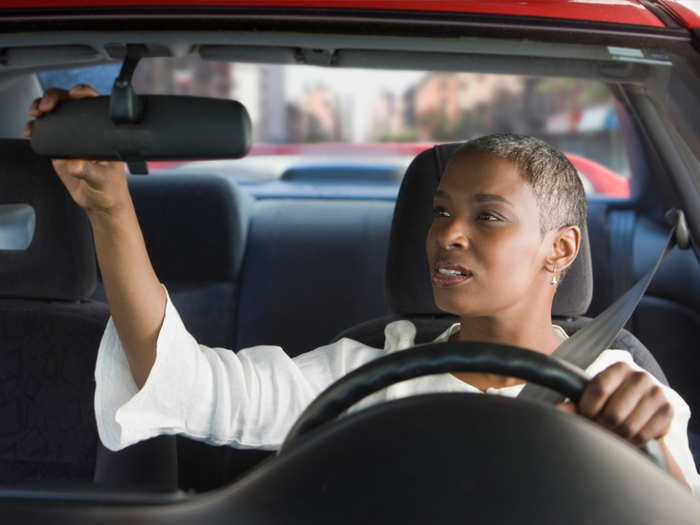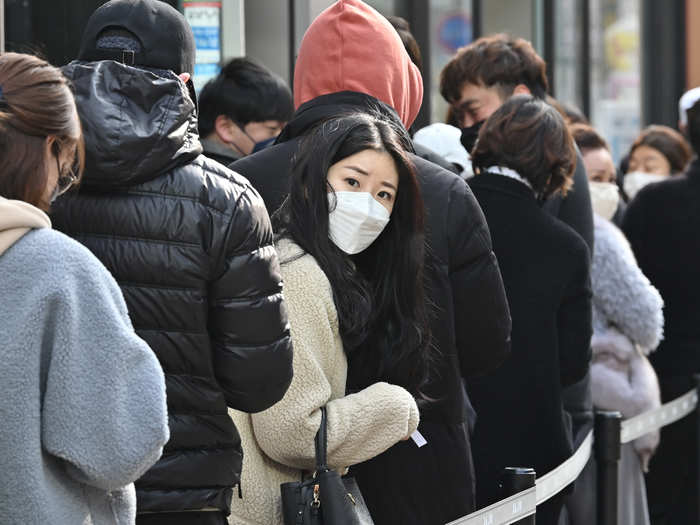- Home
- slideshows
- miscellaneous
- The psychology behind why you want to wear a face mask - even though it probably won't help you avoid illness
The psychology behind why you want to wear a face mask - even though it probably won't help you avoid illness
We fear unknown risks

We struggle with 'the illusion of control'

When we feel anxious about something, we become desperate to gain some sense of control over the situation.
It's a phenomenon psychologists call the "illusion of control." And research shows we often make strange decisions based on our perceived level of control.
For example, research shows most people think they are less likely to get into an accident when driving a car, as opposed to being the passenger. Being in the driver's seat makes people think they can prevent accidents — even though it doesn't really guarantee this at all.
Similarly, studies also show that people think they have a better chance of winning the lottery when they pick their own numbers, as opposed to allowing the computer to pick for them. Even though the numbers are drawn randomly, people are more likely to assume that having more control (picking their own numbers) increases their chances of success.
When it comes to the coronavirus, most of us likely feel we have little control over whether we contract it. And little is known about what might happen if we get it.
Wearing a face mask is one way to convince ourselves that we have some control over it. We tell ourselves, "Wearing this mask decreases my chances of getting sick." This, in turn, reduces our anxiety.
Rather than idly waiting for something bad to happen, we feel better if we take some sort of action. Even if the action isn't helpful, we have a way of fooling ourselves into believing that our behavior has control over the outcome.
We overcompensate when safeguards are in place

Interestingly, research also reveals the tendency to overcompensate when there are "safeguards" in place. Studies have shown that people are more likely to speed when wearing seatbelts.
And insurance companies have even discovered that drivers actually become more reckless when there are more safety features on a car.
This mentality may be one reason why so many people wearing face masks could even be detrimental in certain ways. They have convinced themselves that their face masks will protect them. So rather than reducing contact with the public as is suggested, people who are wearing face masks may actually become more likely to travel or interact with people.
The herd mentality is real

The herd mentality is real — and research shows that most of us jump on bandwagons. So the more you see other people wearing a face mask, the more likely you are to put one on.
Researchers have known for a long time that people are susceptible to "behavioral mimicry," meaning we're quick to copy those around us. So whether you're walking through a marketplace, riding the subway, or sitting on a plane, the more people you see wearing face masks, the more likely you are to convince yourself that you should wear one, too. Not wearing one might even cause you to feel anxious.
The mask-wearers are more visible than people who are taking recommended precautions (washing their hands more often and limiting travel). This can cause you to assume everyone is wearing a mask.
It reduces our anxiety

Most of us equate anxiety with risk level. If we feel really anxious, we reason that something must be really risky. And if we can reduce that anxiety, we'll convince ourselves that the level of risk we face is somehow lower.
So even though we've been warned that wearing a face mask might be a bad idea, doing so might still have the effect of reducing anxiety.
While it's up to you whether you decide to wear a mask, consider why you're doing it. Even though medical professionals might warn against it, you might find it gives you a little peace of mind — which isn't necessarily a bad thing.
Popular Right Now
Popular Keywords
Advertisement